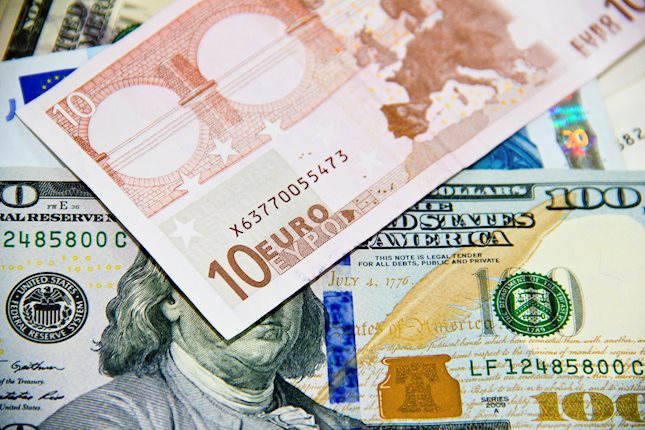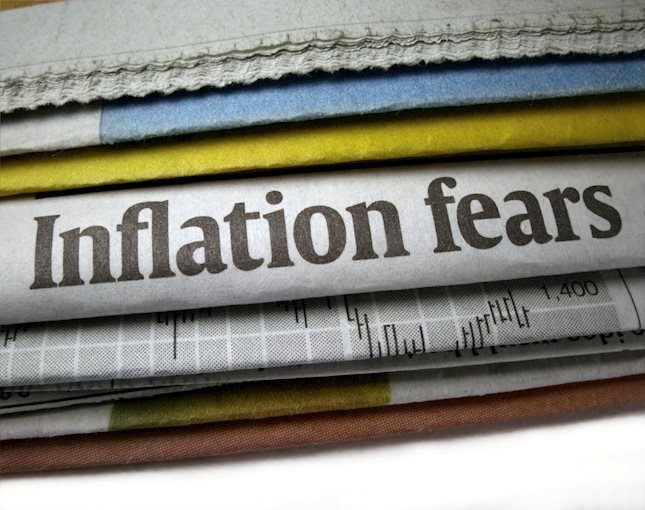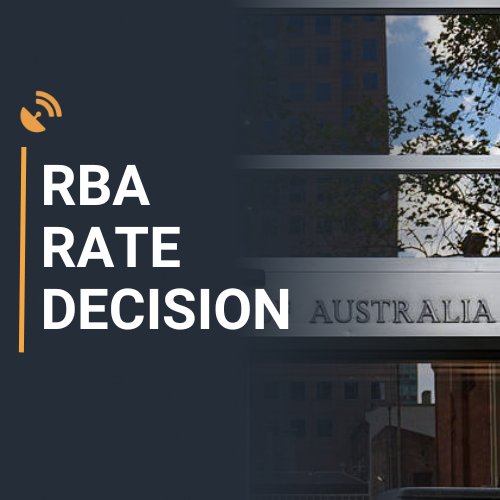- EUR/USD edges lower due to market caution ahead of US Personal Consumption Expenditures data release on Friday.
- Fed Governor Lisa Cook has expressed support for last week's 50 basis point rate cut, pointing to heightened "downside risks" to employment.
- Traders await speeches from ECB’s Philip Lane and Piero Cipollone scheduled later in the day.
EUR/USD retraces its recent gains registered in the previous session, trading around 1.1170 during the Asian session on Friday. The US Dollar (USD) receives support as traders adopt caution ahead of the US Personal Consumption Expenditures (PCE) Price Index data for August. The Fed’s preferred inflation indicator is scheduled to be released later in the North American session.
On the data front, the US Gross Domestic Product Annualized increased at a rate of 3.0% in the second quarter, as estimated, according to the US Bureau of Economic Analysis (BEA) on Thursday. Meanwhile, the GDP Price Index rose 2.5% in the second quarter.
Additionally, US Initial Jobless Claims for the week ending September 20 were reported at 218K, according to the US Department of Labor (DoL). This figure came in below the initial consensus of 225K and was lower than the previous week's revised number of 222K (previously reported as 219K).
However, the US Dollar might have received downward pressure following the dovish remarks from the US Federal Reserve (Fed) officials. Fed Governor Lisa Cook stated on Thursday that she supported last week's 50 basis point (bps) interest rate cut, citing increased "downside risks" to employment, according to Reuters.
European Central Bank (ECB) Chief Economist Philip Lane will likely to deliver the opening remarks at a conference focused on Fiscal Policy, Financial Sector Policy, and Economic Growth in Dublin, Ireland. Meanwhile, ECB board member Piero Cipollone will give a keynote speech at the "Economics of Payments XIII" conference, organized by the Austrian Central Bank.
Euro FAQs
The Euro is the currency for the 20 European Union countries that belong to the Eurozone. It is the second most heavily traded currency in the world behind the US Dollar. In 2022, it accounted for 31% of all foreign exchange transactions, with an average daily turnover of over $2.2 trillion a day. EUR/USD is the most heavily traded currency pair in the world, accounting for an estimated 30% off all transactions, followed by EUR/JPY (4%), EUR/GBP (3%) and EUR/AUD (2%).
The European Central Bank (ECB) in Frankfurt, Germany, is the reserve bank for the Eurozone. The ECB sets interest rates and manages monetary policy. The ECB’s primary mandate is to maintain price stability, which means either controlling inflation or stimulating growth. Its primary tool is the raising or lowering of interest rates. Relatively high interest rates – or the expectation of higher rates – will usually benefit the Euro and vice versa. The ECB Governing Council makes monetary policy decisions at meetings held eight times a year. Decisions are made by heads of the Eurozone national banks and six permanent members, including the President of the ECB, Christine Lagarde.
Eurozone inflation data, measured by the Harmonized Index of Consumer Prices (HICP), is an important econometric for the Euro. If inflation rises more than expected, especially if above the ECB’s 2% target, it obliges the ECB to raise interest rates to bring it back under control. Relatively high interest rates compared to its counterparts will usually benefit the Euro, as it makes the region more attractive as a place for global investors to park their money.
Data releases gauge the health of the economy and can impact on the Euro. Indicators such as GDP, Manufacturing and Services PMIs, employment, and consumer sentiment surveys can all influence the direction of the single currency. A strong economy is good for the Euro. Not only does it attract more foreign investment but it may encourage the ECB to put up interest rates, which will directly strengthen the Euro. Otherwise, if economic data is weak, the Euro is likely to fall. Economic data for the four largest economies in the euro area (Germany, France, Italy and Spain) are especially significant, as they account for 75% of the Eurozone’s economy.
Another significant data release for the Euro is the Trade Balance. This indicator measures the difference between what a country earns from its exports and what it spends on imports over a given period. If a country produces highly sought after exports then its currency will gain in value purely from the extra demand created from foreign buyers seeking to purchase these goods. Therefore, a positive net Trade Balance strengthens a currency and vice versa for a negative balance.
Information on these pages contains forward-looking statements that involve risks and uncertainties. Markets and instruments profiled on this page are for informational purposes only and should not in any way come across as a recommendation to buy or sell in these assets. You should do your own thorough research before making any investment decisions. FXStreet does not in any way guarantee that this information is free from mistakes, errors, or material misstatements. It also does not guarantee that this information is of a timely nature. Investing in Open Markets involves a great deal of risk, including the loss of all or a portion of your investment, as well as emotional distress. All risks, losses and costs associated with investing, including total loss of principal, are your responsibility. The views and opinions expressed in this article are those of the authors and do not necessarily reflect the official policy or position of FXStreet nor its advertisers. The author will not be held responsible for information that is found at the end of links posted on this page.
If not otherwise explicitly mentioned in the body of the article, at the time of writing, the author has no position in any stock mentioned in this article and no business relationship with any company mentioned. The author has not received compensation for writing this article, other than from FXStreet.
FXStreet and the author do not provide personalized recommendations. The author makes no representations as to the accuracy, completeness, or suitability of this information. FXStreet and the author will not be liable for any errors, omissions or any losses, injuries or damages arising from this information and its display or use. Errors and omissions excepted.
The author and FXStreet are not registered investment advisors and nothing in this article is intended to be investment advice.
Recommended content
Editors’ Picks

EUR/USD extends losses to near 1.1150 on increased dovish ECB bets
EUR/USD accelerates decline to near 1.1150 in European trading on Friday. Softer French inflation data ramped up Oct ECB rate cut bets, weighing on the Euro. However, the downside could be cushioned by the renewed US Dollar weakness, as US PCE inflation looms.

USD/JPY slides 1% toward 143.00 as Ishiba wins LDP leadership race
USD/JPY is seeing a fresh sell-off toward 143.00 in the European session on Friday. The pair loses over 300 pips, as the Japanese Yen rebounds on Shigeru Ishiba's win in the LDP leadership run-off. Sanae Takaichi, who favored keeping interest rates lower, was expected to win the race.

Gold correction remains in the offing amid month/quarter-end flows
Gold price treads water while within a striking distance of the new record high of $2,686, as buyers take a breather and consolidate the weekly gains in the countdown to the US Personal Consumption Expenditures Price Index data release later on Friday.

US core PCE set to show continued disinflation trend, reinforcing Federal Reserve easing cycle
The core Personal Consumption Expenditures Price Index is seen rising 0.2% MoM and 2.7% YoY in August. Markets have already priced in near 50 bps of easing in the next two Federal Reserve meetings. A firm PCE result is unlikely to move the Fed’s stance on policy.

RBA widely expected to keep key interest rate unchanged amid persisting price pressures
The Reserve Bank of Australia is likely to continue bucking the trend adopted by major central banks of the dovish policy pivot, opting to maintain the policy for the seventh consecutive meeting on Tuesday.

Five best Forex brokers in 2024
VERIFIED Choosing the best Forex broker in 2024 requires careful consideration of certain essential factors. With the wide array of options available, it is crucial to find a broker that aligns with your trading style, experience level, and financial goals.